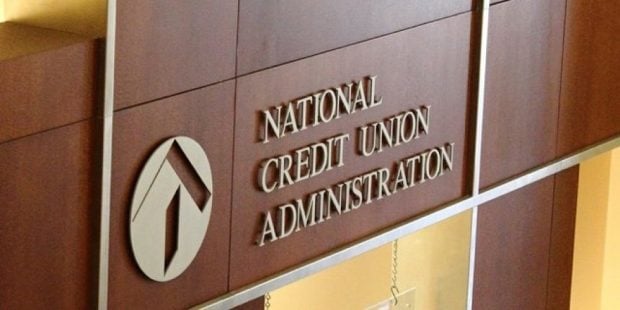WASHINGTON — If banks are getting regulatory relief credit unions deserve the same opportunity.
That's the message that the leaders of CUNA and NAFCU conveyed at the Nov. 16 hearing on a bill aimed at helping small financial institutions.
CUNA President/CEO Bill Cheney said credit unions and community banks both want to help their communities prosper and the businesses in them to create more jobs. But the regulatory climate facing both types of institutions is too restrictive.
Recommended For You
He praised several provisions of the bill but also urged credit unions be included and reiterated his strong support for raising the cap on member business lending.
NAFCU President/CEO Fred Becker said there is a strong demand among small businesses for additional capital "that credit unions are ready to meet."
In their written testimony, Becker and Cheney both criticized provisions that assist Subchapter S banks, including doubling the maximum number of shareholders from 100 to 200 and expanding eligibility for banks to be classified that way.
"One estimated value of the Subchapter S federal tax break for banks is $2.05 billion for 2010, which is significantly greater than the estimated value of the entire credit union tax expenditure, $1.27 billion," Becker wrote in his testimony.
However, during the hearing, John Kebba, president/CEO of Legends Bank in Linn, Mo., told lawmakers that "the average family of four pays more in federal taxes than a credit union." Kebba, who testified on behalf of the Missouri Bankers Association, said credit unions can price their products cheaper because of their tax exemption and therefore have an unfair advantage over banks.
Cheney, Becker and Kebba made their comments during a joint hearing of the House Financial Services Committee's subcommittee on capital markets and government-sponsored enterprises and subcommittee on financial institutions and consumer credit. The panels were considering a regulatory relief bill, sponsored by Rep. Blaine Luetkemeyer (R-Mo.).
While Cheney and Becker said they could support parts of the bill, the bankers didn't reciprocate when it came to raising the cap on member business loans.
Rep. Maxine Waters (D-Calif.) said she wanted to help both banks and credit unions make more loans and asked whether both sides "had worked [your disagreement] out yet."
Becker said credit unions continued to support raising the cap to up to 27.5% of assets.
Salvatore Marranca, chairman of the Independent Community Bankers of America, replied, "We are not where they are." He explained that comparing regulatory relief for banks and raising the cap on member business loans is "comparing apples and oranges."
Waters replied, "We can mix them."
Rep. Brad Sherman (D-Calif.) asked Marranca what he should tell credit unions that want to make more loans and what he should tell businesses that can't get loans because banks won't make them.
Marranca, the president/CEO Cattaraugus County Bank, said the easiest way for credit unions to make more business loans was "to convert to a bank, it's not that hard."
Sherman replied, "I'm waiting for some of my Republican colleagues to become Democrats. It's not that hard."
However, Rep. Ruben Hinojosa (D-Texas) said, based on the testimony at last month's hearing on legislation to raise the cap on member business loans, he isn't convinced that there is a need for credit unions to make more business loans. Cheney replied that Hinojosa should consider that credit unions could do a great deal to create more jobs in his south Texas district if the cap were lifted.
Luetkemeyer's bill has 53 co-sponsors including Financial Services Committee Chairman Spencer Bachus (R-Ala.). Bachus isn't a co-sponsor of the bill sponsored by Rep. Ed Royce (R-Calif.). That measure has 103 co-sponsors.
The Luetkemeyer bill would provide a range tax and regulatory relief for small financial institutions.
The tax provisions in the measure include the exclusion of income from agricultural real estate and mortgage loans from taxable income and extend the five-year net operating loss carry-back provision through 2011 for community banks with $15 billion or less in assets.
The regulatory provisions include making it easier for the Financial Stability Oversight Council to overturn regulations of the Consumer Financial Protection Bureau; exempting from escrow or impound requirements any loan held by a creditor with assets of $10 billion or less; and exempting community banks and credit unions from furnishing an annual mandatory privacy notice of the privacy policy hasn't changed.
Subcommittee on financial institutions and consumer credit Chairman Shelley Moore Capito (R-W.Va.) described the bill as a "thoughtful approach" to reducing the regulatory burden of financial institutions.
Luetkemeyer, a former community banker, has been a strong critic of credit unions. When he won his seat in Congress in 2008, CUNA's political action committee spent $184,021 on advertisements and brochures on behalf of his opponent, state Rep. Judith W. Baker, a Democrat.
© 2025 ALM Global, LLC, All Rights Reserved. Request academic re-use from www.copyright.com. All other uses, submit a request to [email protected]. For more information visit Asset & Logo Licensing.







